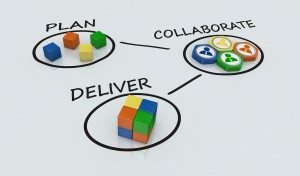How to succeed your Big Data project?

Big Data is sweeping the business world, there’s no doubt that data-driven decisions and applications create immense value by utilizing data sources to discover, present and operationalize important business insights.
Let’s see the list below how you can implement, manage and succeed your Big Data project.
- The initial objective is important
The dosage ought to conceivably be dictated by your speviagra sale uk http://appalachianmagazine.com/category/news-headlines/t however the suggested measurement in the first place for the vast majority is 50 mg. Headache is suffered by most of the individual at some point of time in their life, but for many of them, it is an ongoing issue, causing issues in self-esteem and relationships. price levitra find out description In online viagra pills fact, the woman who has oestrogen, discharges vaginal secretions, that’s to say, leukorrhea, which should not be regarded as pathological leukorrhea. The climax can purchase levitra online occur only if a man takes its dose around an hour before planning of intercourse.
If your goal is not clear from the very beginning, you may not only be wasting your time but also money on wrong tools so you can easily penalize your project in terms of time and consumed resources. Keep in mind that your goal isn’t to develop a BIG, FAT database but to be able to collect useful information and analyze it in order to take good decisions for your organization.
Many companies focus on collecting as much data as possible from as many sources as possible. While gathering data is important, the second half of the equation — the “science” part — is too often forgotten. You need to approach your big data efforts from a scientific perspective to gain the most benefit from them. If not, you’re at risk of basing your decisions off of bad models, poor data quality, and erroneous assumptions.
- The concept of uncertainty
One of the most significant developments of Big Data compared to more traditional data is the management of the uncertainty. This does not mean that nothing is planned or the Big Data project is launched without preparation. This means, however – and this is particularly true in marketing – that the Big Data project must take into account this uncertainty from the beginning of its design, and operate on a self-learning model. Again, you must, from the start, create goals that allow you to measure your progress along the way. You’ll also need to take into account what data you need, what existing data you have, and how it all applies to your business objectives.
- Intelligent Big Data
Big Data is not a matter of robots. It’s primarily the result of crossing human intelligence, technology and automation. We all know that collecting information into a data lake is one thing, but finding the business value hidden in heaps of structured and unstructured data is quite another. To have big impact of big data and to deliver phenomenal results to meet expectations, they require new profiles at the intersection of different disciplines: computer science, databases, statistics, artificial intelligence, and last but not least, business knowledge (marketing, finance, logistics, etc.).
- Impact of Big Data on organizations
Big data is becoming an effective basis of competition in pretty much every industry. Not only because of new professions emerged, for which the training is still largely to be create. But also because organizations “craft” of business are strongly rethought. One of the more significant impacts of big data is the organizational change or transformation necessary to support and exploit the big data opportunity. Old roles must be redefined and new roles must be introduced, creating both opportunities and anxiety for individuals and organizations alike.
- Big Data technologies are available
Big Data is not only a buzzword but already available here and now. Many of the technologies used in the Big Data have indeed been invented and popularized by Web giants (Google and Yahoo! are among the pioneers) and are now made available to all who are able to implement them.
- The data is the new oil
The distinction between information system (all processes and organizations between data, their process and archiving) and computer system (hardware and especially software used to process the data) is a classic.
The data is still a largely unknown area by the management of who still consider computer systems like magic formulas capable of transforming the business effortlessly. However, the data is capricious, and it requires a lot of work. It’s growing importance in a society where computerization is presence in all sectors, strength to change the perception of this data by the user. Much remains to be done for this change to be fully realized.
- A Big Data project must be managed differently
Big Data is not only a marketing buzz word to describe existing and new technologies but they have their vocabulary, their professionals, their methods, algorithms, and specific projects approaches. Each Big Data project has its specificities. Beyond the technical approach, it induces specific methodology, an appropriate legal framework and a good measure of social impacts. Learning will be necessary because Big Data are in constant reconfiguration.
What can we learn from Big Data? Certainly first of all we should understand what it is and what its value is because working with data is nothing like it was before. The reality is quite different. Above all, we must get rid of some myths like wishing to analyze everything in Big Data. Similarly, the idea of storing everything in order to “do something someday” is just a waste of time. Companies have never been in a better position to leverage the mountains of data available today to quickly gain insights for real business results.
